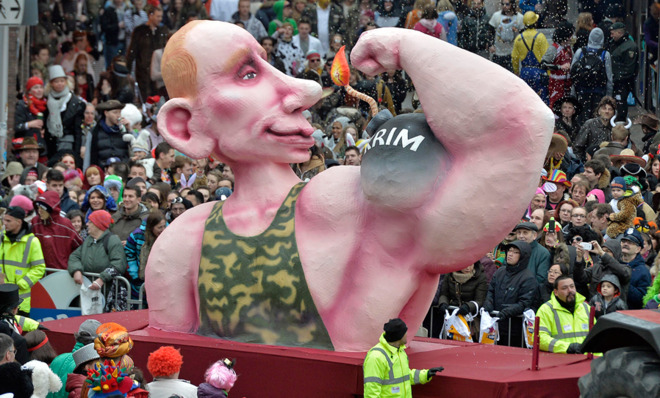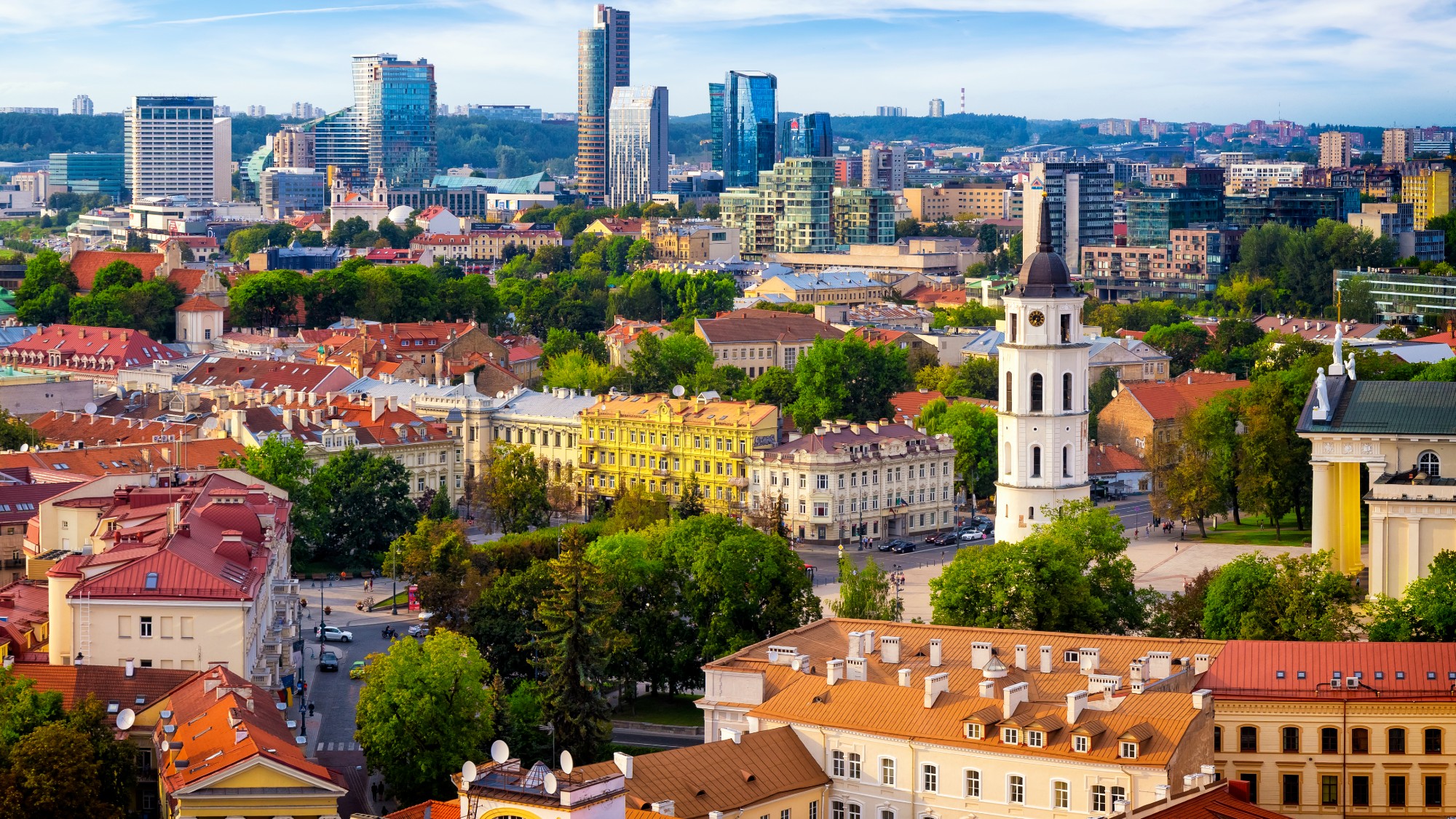3 big checks on Putin's power
The Russian president's bluster is bigger than his bite


As Russian troops tighten their control of the Crimean Peninsula, Russian President Vladimir Putin's diplomatic and military maneuvering face several constraints that might not be obvious to most Americans watching or reading the news. The Obama administration has these limits in mind as it decides how to respond.
1. Russian public opinion. When it comes to protecting ethnic Russians in Crimea, ordinary Russians are ready to endorse almost any measure short of full-scale warfare. Here, post-Soviet Russian chauvinism chases away other considerations, like Russia's standing in the world. Slavic nationalism glues Soviet elites of the older generation to younger Russians who are frustrated with both Putin and the West. Self-determination? Sixty percent of folks in Crimea identify as Russian.
Ukraine-writ-large is different. Russians understand the country's importance to Russia's geopolitical ambitions and fear the consequences of a small but potent anti-Russian right-wing. I'm guessing that a full occupation of Ukraine is much too large for the appetite of the Russian people to stomach. A stalemate, or a process, is much preferable to war, a war that would doubtless exacerbate whatever tensions already exist. In Ukraine, Russian belligerence will alienate the world community much more indelibly, and Russians know that. The Crimea is gettable. Ukraine is not, without significant costs that Russians — who are getting whiffs of what it's like to exercise global political leadership again (think Iran and Syria) — probably won't let their technocratic oligarchical political system bear.
The Week
Escape your echo chamber. Get the facts behind the news, plus analysis from multiple perspectives.

Sign up for The Week's Free Newsletters
From our morning news briefing to a weekly Good News Newsletter, get the best of The Week delivered directly to your inbox.
From our morning news briefing to a weekly Good News Newsletter, get the best of The Week delivered directly to your inbox.
2. Putin's own ambitions. Russia is in an expansive mood. In the past year, Putin has brokered a deal to destroy Syria's chemical weapons, trumping and embarrassing the United States. Russian diplomacy helped bring Iran to the negotiating table. The Sochi Olympics, you've got to say, were pretty well run. The West might not like or trust Putin, but he's been an indispensable partner. Truly isolating Russia would shift the global balance of power back towards the United States and Europe. Putin will lose influence in the world. Even China, nominally Russia's cousin in promoting self-determination, does not want the rest of the world to clip its ties with Russia. The opposite might also work against Putin: if China gets stronger as Russia gets weaker, that's not ideal either. China looks out for its own ambitions first. It has little direct interest in antagonizing the West.
3. The Russian military. In Georgia, Russia relied more on trickery than on conventional application of doctrine. It has been ramping up both its showy exercises and its ground strength over the past several years, triggering speculation that its main anticipated challenge was the future conflict over Ukraine. That said, Russia's air force and navy are not particularly well regarded. They would be crushed by NATO forces. The Ukrainians would be defending their home territory, and if command and control hold, they would, you know, actually fight. Russian military planners are constrained by the relative limitations of the army that they have.
A free daily email with the biggest news stories of the day – and the best features from TheWeek.com
Marc Ambinder is TheWeek.com's editor-at-large. He is the author, with D.B. Grady, of The Command and Deep State: Inside the Government Secrecy Industry. Marc is also a contributing editor for The Atlantic and GQ. Formerly, he served as White House correspondent for National Journal, chief political consultant for CBS News, and politics editor at The Atlantic. Marc is a 2001 graduate of Harvard. He is married to Michael Park, a corporate strategy consultant, and lives in Los Angeles.
-
 Gavin Newsom and Dr. Oz feud over fraud allegations
Gavin Newsom and Dr. Oz feud over fraud allegationsIn the Spotlight Newsom called Oz’s behavior ‘baseless and racist’
-
 ‘Admin night’: the TikTok trend turning paperwork into a party
‘Admin night’: the TikTok trend turning paperwork into a partyThe Explainer Grab your friends and make a night of tackling the most boring tasks
-
 Find art, beautiful parks and bright pink soup in Vilnius
Find art, beautiful parks and bright pink soup in VilniusThe Week Recommends The city offers the best of a European capital
-
 The billionaires’ wealth tax: a catastrophe for California?
The billionaires’ wealth tax: a catastrophe for California?Talking Point Peter Thiel and Larry Page preparing to change state residency
-
 Bari Weiss’ ‘60 Minutes’ scandal is about more than one report
Bari Weiss’ ‘60 Minutes’ scandal is about more than one reportIN THE SPOTLIGHT By blocking an approved segment on a controversial prison holding US deportees in El Salvador, the editor-in-chief of CBS News has become the main story
-
 Has Zohran Mamdani shown the Democrats how to win again?
Has Zohran Mamdani shown the Democrats how to win again?Today’s Big Question New York City mayoral election touted as victory for left-wing populists but moderate centrist wins elsewhere present more complex path for Democratic Party
-
 Millions turn out for anti-Trump ‘No Kings’ rallies
Millions turn out for anti-Trump ‘No Kings’ ralliesSpeed Read An estimated 7 million people participated, 2 million more than at the first ‘No Kings’ protest in June
-
 Ghislaine Maxwell: angling for a Trump pardon
Ghislaine Maxwell: angling for a Trump pardonTalking Point Convicted sex trafficker's testimony could shed new light on president's links to Jeffrey Epstein
-
 The last words and final moments of 40 presidents
The last words and final moments of 40 presidentsThe Explainer Some are eloquent quotes worthy of the holders of the highest office in the nation, and others... aren't
-
 The JFK files: the truth at last?
The JFK files: the truth at last?In The Spotlight More than 64,000 previously classified documents relating the 1963 assassination of John F. Kennedy have been released by the Trump administration
-
 'Seriously, not literally': how should the world take Donald Trump?
'Seriously, not literally': how should the world take Donald Trump?Today's big question White House rhetoric and reality look likely to become increasingly blurred
